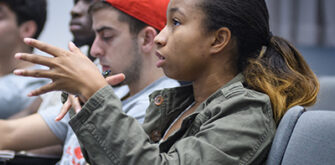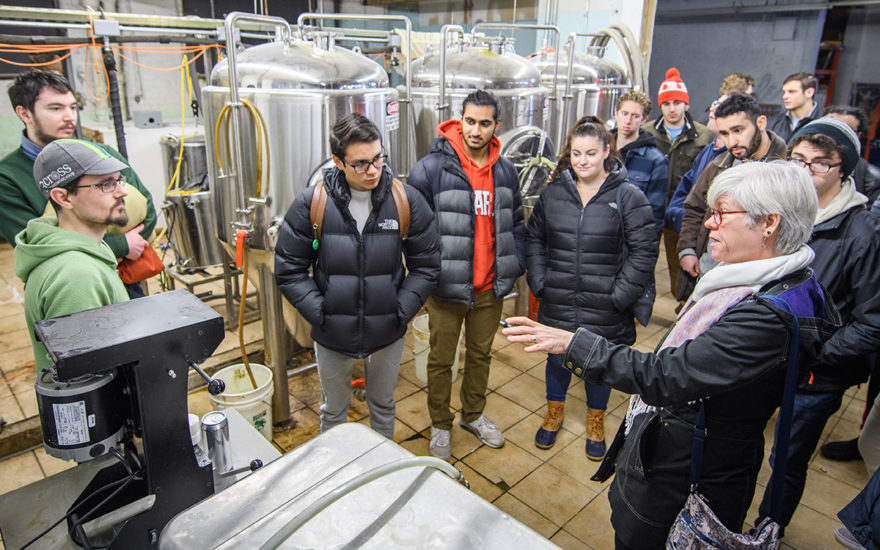The economics major is designed to give you an understanding of the core theory of economics, frameworks for analyzing issues, how to identify and manipulate relevant data, the basic tools of statistical analysis (statistics and econometrics), and the ways such knowledge and skills can be applied to research and problem-solving.
Courses are available in international trade and finance, economic development, monetary economics and labor, environmental economics, development economics, economic history, and the economics of sport.
Eleven courses are required for the major:
- Six core courses in quantitative methods and economic theory
- Four elective courses in economics
- One related course in mathematics (calculus is recommended)
- A senior year capstone experience (this can count as one of your four electives)
In addition, we encourage you to take two courses that complement your major from outside the Economics Department. Your faculty adviser will work with you to develop a program that meets your interests and goals.
Qualified juniors and seniors can join the Clark chapter of Omicron Delta Epsilon (ODE), the international economics honor society. ODE offers members a number of benefits, including access to other members from around the world and opportunities to publish original research.
Read the Undergraduate Economics Handbook (PDF).


